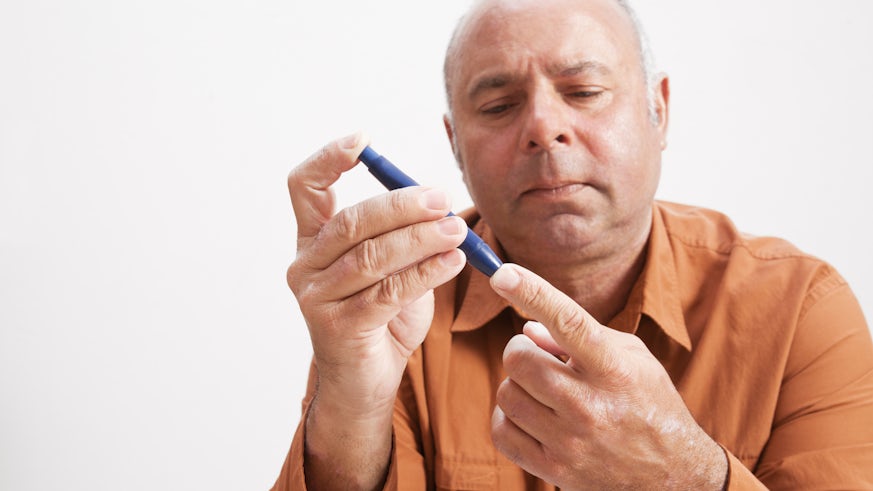Type 2 diabetes on the rise
16 March 2017

The number of people in the UK with type 2 diabetes has trebled over the last two decades, concludes a study led by Cardiff University.
The new findings, based on data collected by GP services in the UK between 1991 and 2014, also show a marked increase in life expectancy for people with the disease, explaining in part its increased prevalence.
The increased number of people with the disease has also been linked to better diagnosis and rising levels of obesity; between 1993 and 2010 the proportion of obese people in the UK went from 13% to 26% for men and from 16% to 26% for women.
Professor Craig Currie from Cardiff University’s School of Medicine said: “The number of people with type 2 diabetes in the UK has gone from 700,000 to around 2.8m over two decades, and it continues to increase...”

“We are also seeing increased life expectancy from the disease which could be due to earlier diagnosis of the condition as well as drugs such as blood pressure tablets and statins for blood cholesterol.”
The data also reveal that the prevalence of diagnosed type 2 diabetes increased with age, although this increase is lower in people aged 80 years and above. The disease prevalence was also generally higher in men than in women above the age of 40 years. Below the age of 40 it was similar.
Type 2 diabetes develops when the insulin-producing cells in the body are unable to produce enough insulin, or when the insulin that is produced does not work properly (known as insulin resistance). It is treated with a healthy diet and increased physical activity. In addition to this, medication and/or insulin are often required.
The research ‘Prevalence, glucose control and relative survival of people with Type 2 diabetes in the UK from 1991 to 2013’ is published in Diabetic Medicine.
The organisations involved in the research include the Institute of Population Medicine, School of Medicine, Cardiff University; Global Epidemiology, Pharmatelligence, Department of Medicine, University Hospital of Wales; and Department of Medicine, Rudolfstiftung Hospital Vienna, Vienna.

